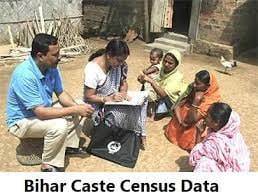Caste data’s benefits and risks may be overblown
Last week, the Patna high court upheld the Bihar government’s right to conduct a caste survey. The historic exercise, the first of its type since 1931, began earlier this year and aimed to conduct an enumeration of the socioeconomic status of households — including indicators of wealth, education and, most importantly, jati (caste) — but was paused because of an interim order of the high court in May.
In its order, the high court rejected the petitioner’s plea that only the Union government could conduct such an exercise. Arguing that “the collection of statistics to further economic and social planning and ensure social security and insurance is definitely within the premise of the State”, the high court declared that a survey of this sort is not merely permissible, but also important to conduct.
Moreover, holding that the terms “survey” and “census” have been interchangeably used before, the court held that the determination of backwardness is a legitimate goal of such a survey.
Additionally, the court dismissed privacy concerns by saying that 80% of the survey is complete and “not even one instance [of] a complaint of coercion” has come forth, and that collecting personal data to improve policy-making is a valid goal.
The judgement makes the path easier for other states in India to conduct such exercises. This will invariably occur. The Bihar survey, it must be noted, had support from political parties across the spectrum. By conducting a similar census, states will begin to develop a clearer understanding how caste hierarchies map onto economic hierarchies across geographies.
Caste, which continues to determine life outcomes from occupation choice to marriage in much of India, remains stubbornly central — if not always visibly so — in the organisation of society. Knowing which castes need support — and where — can improve government functioning, as the judgement also notes. It could help target non-universal benefits better, carve out new policies for those specially in need and rationalise reservations. Finally, in the absence of the decennial census, these caste surveys could help fill important data lacunae.
Critics of conducting such an exercise make three points. First, they argue that such surveys vitiate the atmosphere, reinforcing divisions among castes. This may not always be true. Bihar conducted its caste survey over four months this year: At no point was there a significantly visible deterioration in caste relations. However, the more substantive worry is whether caste divides worsen once the results of the census are made public.
This is a valid concern, but one could argue that jati is so central to life in India that the marginal impact will be small. Those who lived through the Mandal Commission years will attest to the severity of the protests and the violence it unleashed, but the Mandal Commission proposed adding a whole new category of individuals — the Other Backward Classes (OBCs) — to the reserved category. This is unlikely to be the case today.
A second concern relates to the government’s priorities. Such an exercise, it is argued, will distract from the government’s task of ensuring welfare of the disadvantaged, curbing inflation and unemployment and ensuring economic growth. The survey will result in groups clamouring for reservations and benefits and the politics of social justice will replace policies for development. There is, once again, some merit to the claims in the argument. However, while it is true that mandating reservations is easier than the hard task of, say, ensuring quality education for children, it is unclear if this trade-off is as significant as it is made out to be.
Poor government policy is much more closely linked to short policy time horizons, an increasingly unrepresentative political class, an overburdened bureaucracy and a lack of ideas, than it is to an unhealthy focus on reservations.
A third concern is the following: If the survey points to a new set of jatis that are in desperate need of policy support, will it come at the cost of the existing set of jatis benefitting from reservations or will they be accommodated in addition to these? If the latter, will this result in a majority of opportunities being reserved?
The history of reservations in India suggests that it is going to be hard to withdraw reservation from existing jatis — thus, the more likely scenario is that more jatis will benefit from reservation. Is this always a bad thing? There is no empirical evidence to suggest that more than 50% reservation worsens growth or socioeconomic outcomes.
Tamil Nadu’s experiment with 69% reservation hasn’t proven disastrous; if anything, scholarly work suggests the opposite, that the social churning caused by reservation, in conjunction with progressive policies, has expanded opportunities for minorities and democratised society.
Indeed, more still needs to be done in the state, especially for Dalits and tribals, but there seems to be no obvious costs of expanded reservations in the last few decades. Similarly, if we include reservations for women, many states (such as Bihar) have nearly 65% reservation of seats in elected positions in local bodies. While there is considerable evidence suggesting that quotas improve outcomes for minority groups, it is hard to make the opposing claim, that lower reservations would have dramatically altered outcomes.
In the end, the success of the caste survey in bringing about “development with justice”, as the Patna high court hopes, depends on the government’s ability to put together a meaningful policy agenda that builds on what the exercise shows.
The benefits are contingent and contained to specific groups and may only materialise in the long-run. Here, therefore, is one possible account of the aftermath of the upcoming wave of caste surveys in India: While the advantages may have limitations, the drawbacks appear to be few too.
